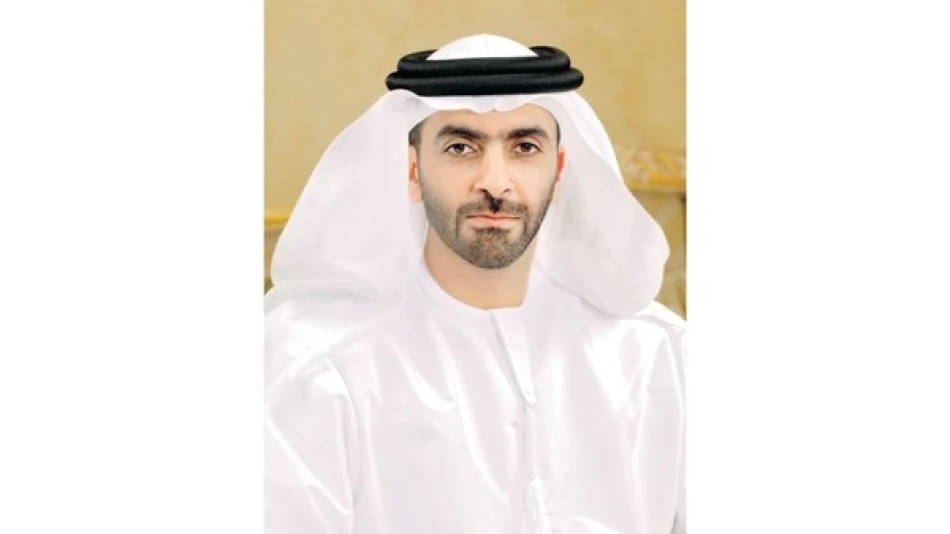
UAE's Deputy PM Congratulates Newly Appointed Health Minister Ahmed Al Sayyagh
UAE Appoints New Health Minister as Healthcare Sector Undergoes Strategic Transformation
The United Arab Emirates has appointed Ahmed Al Sayegh as the new Minister of Health, with Deputy Prime Minister and Interior Minister Sheikh Saif bin Zayed Al Nahyan publicly congratulating the appointee on social media. The appointment signals continued government focus on strengthening the UAE's healthcare infrastructure as the nation positions itself as a regional medical hub and prepares for demographic shifts driven by an aging expatriate population and growing medical tourism sector.
Leadership Transition in Critical Healthcare Portfolio
Sheikh Saif bin Zayed Al Nahyan announced his congratulations to Ahmed Al Sayegh via his official account on X (formerly Twitter), stating: "We congratulate our brother His Excellency Ahmed Al Sayegh for gaining the trust of the wise leadership through his appointment as Minister of Health. We wish him success and guidance in serving the nation and enhancing the healthcare sector's journey in the UAE."
The public endorsement from such a senior government figure underscores the strategic importance the UAE leadership places on healthcare governance, particularly as the ministry oversees policies affecting both the country's 10 million residents and its growing medical tourism industry.
Strategic Timing Amid Healthcare Sector Expansion
Regional Healthcare Hub Ambitions
Al Sayegh's appointment comes as the UAE accelerates its transformation into a regional healthcare destination, competing directly with established medical tourism hubs like Singapore and Thailand. The country has invested billions in state-of-the-art medical facilities, including the Cleveland Clinic Abu Dhabi and various specialized cancer treatment centers.
This ministerial change occurs at a pivotal moment when the UAE's healthcare sector is experiencing unprecedented growth, driven by government initiatives to diversify the economy away from oil dependency. The healthcare market in the UAE is projected to reach $19.5 billion by 2025, representing significant opportunities for both public policy innovation and private sector investment.
Demographic Pressures and Policy Challenges
The new health minister will inherit several complex challenges, including managing healthcare costs for an increasingly diverse population and ensuring quality standards across a rapidly expanding private healthcare sector. Unlike neighboring Saudi Arabia, which relies heavily on government-funded healthcare, the UAE operates a mixed public-private model that requires careful regulatory balance.
The appointment also comes as the UAE continues to position itself as a post-pandemic recovery model, having achieved one of the world's highest vaccination rates and maintained relatively open borders compared to regional peers during COVID-19.
Implications for Healthcare Investment and Policy
For healthcare investors and pharmaceutical companies, ministerial appointments in the UAE often signal policy direction changes that can impact market access and regulatory frameworks. Al Sayegh will likely focus on digital health initiatives and telemedicine expansion, areas where the UAE has lagged behind regional competitor Saudi Arabia's ambitious NEOM health city project.
The emphasis on gaining "the trust of the wise leadership" in Sheikh Saif's statement reflects the UAE's governance model, where ministerial effectiveness is measured by alignment with national vision objectives rather than traditional political metrics. This approach has historically resulted in pragmatic, business-friendly healthcare policies that attract international medical institutions and pharmaceutical investment.
Most Viewed News

 Layla Al Mansoori
Layla Al Mansoori






